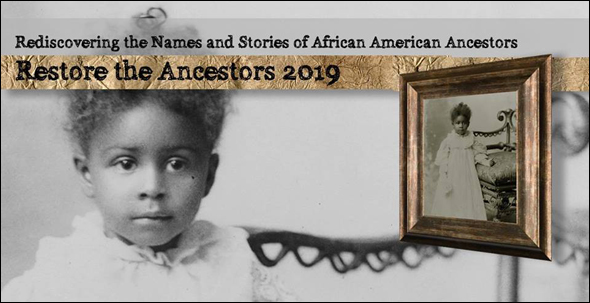Restoring the names
Of all of the lasting — and devastating — effects of slavery in the United States, perhaps the worst from a genealogical perspective is severing generations of people from each other.
Taking people away from their families.
Taking even their names.
And the reality is that this severing effect didn’t end with the end of slavery as an institution. The Jim Crow era and the Great Northward Migration of roughly five to six million African Americans from the rural south to the more industrialized northeastern, midwestern and western states had its own role in severing family ties.1
Taking people away from their history.
Taking them away from the names of their ancestors.
It’s time — and more than time — for the entire genealogical community to do what it can to restore the ancestors.
And we’ve just been handed an invitation to do just that.
Late yesterday, the Center for Family History at the International African American Museum, FamilySearch and BlackProGen Live announced the launch of Restore the Ancestors 2019, “a volunteer community effort to index FamilySearch records of interest for African American genealogy, with a special focus on records for the former slaveholding states.”2
The announcement explains:
The Restore the Ancestors 2019 project, an outgrowth of the recently announced partnership between the International African American Museum and FamilySearch, is a collaboration between the Center for Family History at the International African American Museum, BlackProGen LIVE and FamilySearch. Project Coordinators are Angela Walton Raji, Toni Carrier, Alana Thevenet, Robin Foster, William Durant and Candace Turpin.
The first records the project will index are early marriage records Colleton County, SC, an area where few antebellum records survive. These records will be of value to those seeking African American ancestors in an area that has experienced significant record loss. Additional record sets of interest for African American genealogy will be added to the project over time.3
Indexing records on FamilySearch.org is easy. Many of us have done it for other projects at other times and we’ve found it to be downright fun. Other than needing to register for this project rather than just jumping in, this project is no different. And if you’ve never done indexing there before, the announcement — you can find it here — has step-by-step instructions on how to join in. And there’s a Facebook group after we register for the project where we can go for more help.
So let’s see here… easy… fun… and helping do a Good Work. In capital letters.
Sign me up.
Come join me.
Cite/link to this post: Judy G. Russell, “blog Restoring the ancestors,” The Legal Genealogist (https://www.legalgenealogist.com/blog : posted 4 Apr 2019).
SOURCES
- See Stephanie Christensen, “The Great Migration (1915-1960),” BlackPast.org (https://www.blackpast.org/ : accessed 4 Apr 2019). ↩
- Toni Carrier, “Announcing the Restore the Ancestors 2019 Project: Help Us Index Records for African American Genealogy,” Center for Family History, International African American Museum (https://cfh.iaamuseum.org : accessed 4 Apr 2019). ↩
- Ibid. ↩




Thanks, Judy. Funny how things kind of line up sometimes, isn’t it?
All the darned time!!
I will certainly help with the indexing of this project. Much to my consternation, I’ve recently come across ancestors who owned slaves. I’ve thought it would nice if there was a database or something where the names of the slaves and slave owners and locations could be posted when people come across records containing this information. Thanks Judy for letting us know about this indexing project.
Thanks for letting us know about this project Judy. I have signed up and am looking forward to making a contribution.
Not sure if this fits the purpose of this blog, but I have transcribed 22 books of “colored” marriages, and African-American marriages from another 10 books of “integrated” records. This gives me every African American marriage in Boyle County, KY from 1866 to 1967, and from Lincoln County, Kentucky, from 1866 to 1918.
I have also transcribed military enlistment records from the Civil War, from WW1 and WW2 for African-Americans, as well as African American death records for Boyle, Lincoln, and Garrard Counties, KY from 1911 to 1965.
These and many other records are available to anyone at http://sites.rootsweb.com/~kydaahs/index.htm
Now I’ll have to see how I can help THIS project…
Thanks for all your good work!
Thank you for joining this great project!
Thank you and everyone involved for spearheading it!